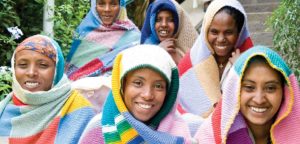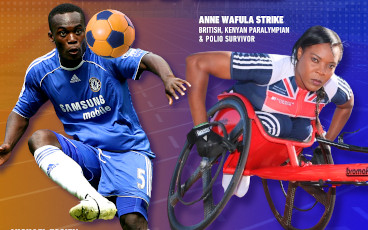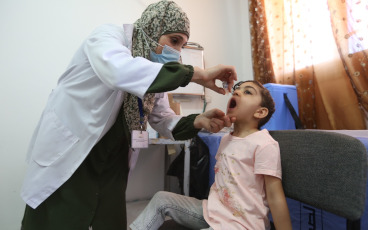Polio programme supports anti-fistula efforts in Ethiopia
Another ‘Plus’ in ‘PolioPlus’

The drive to eradicate polio has always been about more than polio alone. During polio vaccination campaigns in Ethiopia, polio frontline health workers and vaccinators are actively looking for women suffering from fistula.
Fistulas are devastating injuries sustained by women during prolonged and obstructed labour, requiring surgical intervention to rectify. Often the bladder is completely destroyed, or rectum and urethra significantly damaged. The longer that such injuries are left untreated, the more complex and serious they become.
In Ethiopia, the Addis Ababa Fistula Hospital and its regional fistula centres provides life-saving operations to women affected by fistula. One of the key challenges, however, is to identify women suffering from such injuries, particularly in remote or hard-to-reach areas.
That is why the polio programme in Ethiopia is now collaborating with the hospital in helping identify patients. As vaccinators and health workers travel town to town, village to village and house to house delivering polio vaccine, they actively engage with communities, community leaders and parents, to identify women suffering from fistula. As a result of this collaboration, more than 2,400 women have so far been identified with such injuries, particularly from remote areas, who can now be referred to the hospital for appropriate and urgently-needed intervention.
The polio network routinely conducts surveillance for other diseases of public health importance, including measles, yellow fever, neonatal tetanus and avian influenza. With local knowledge of communities, health systems and government structures, the polio network’s technical capacity in disease surveillance and planning of large-scale operations often helps sustain international and national relief efforts.
The extensive polio eradication network at country-level has proved itself repeatedly to be uniquely equipped to provide immediate support during emergencies or other disease outbreaks, for example providing frontline relief following the Nepal earthquake in 2015. Front line polio workers are equipped with vaccines, medications, potable water and sleeping bags, in addition to critical logistics support such as vehicles and radio and satellite equipment. The medical officers conducted the initial rapid assessment of the disaster and communicated their observations to the capital to allow effective relief planning. They also provided emergency medical care during the following days, setting up treatment camps and transporting patients, while planning and implementing mass vaccination campaigns against measles, polio and tetanus. Similar support was given during the Sahel drought in 2013 and the Horn of Africa drought in 2011-2012, and to the Ebola outbreak response effort across western Africa.
Polio-funded staff at country level spend, on average, 50% of their time working on broader public health efforts, over and beyond polio eradication. They provide a critical contribution to strengthening health systems. Ensuring that the infrastructure built up to eradicate polio continues to support essential polio functions and broader health services, even after the disease has been eradicated, is now one of the highest priorities for the programme. An extensive ‘transition planning’ process is underway at the country and global level that engages partners and governments to fully map the polio infrastructure, ensure that the key lessons and best practises of polio eradication are captured prior to programme closure, and essential polio functions are sustained through integration into other broader public health initiatives.












